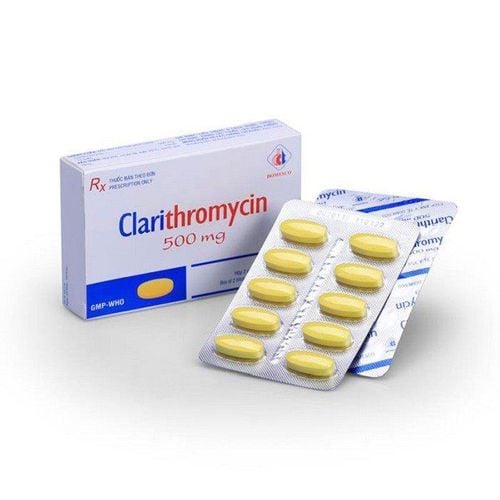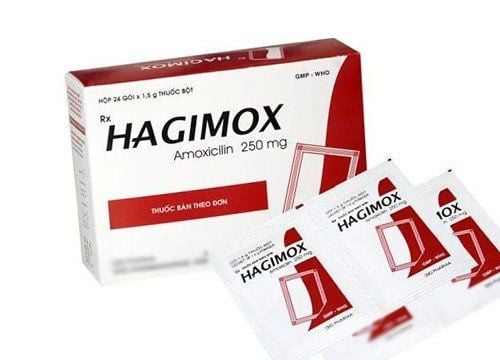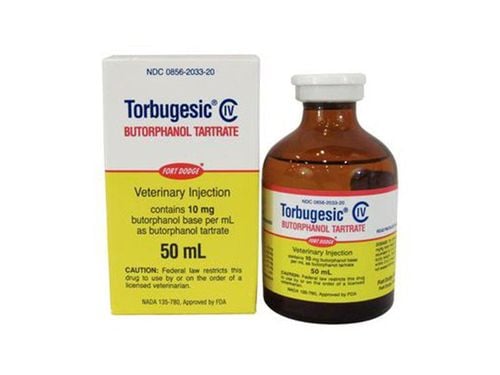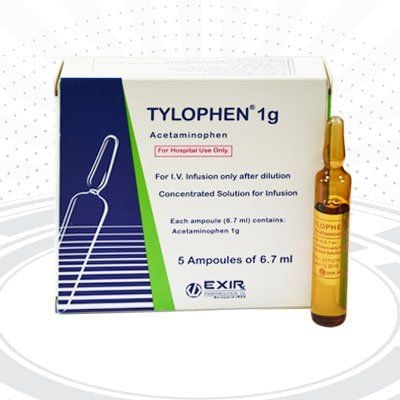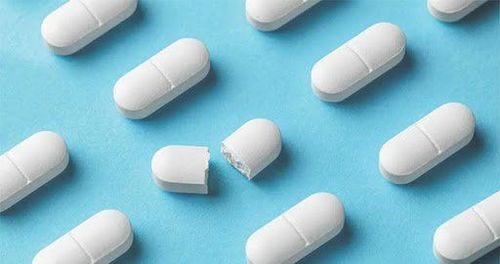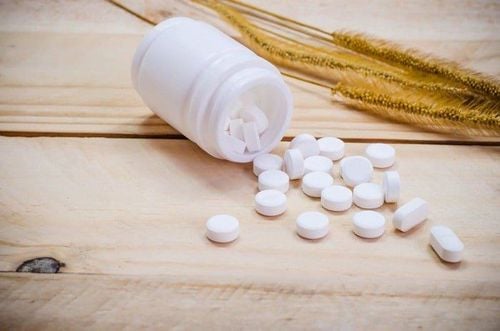This is an automatically translated article.
Acegoi drug is used to treat fever, headache, respiratory infection, .... Here is some useful information about Acegoi drug to help patients learn and use the drug safely and effectively. .
1. What is Acegoi?
Acegoi is a drug belonging to the group of analgesics, antipyretics, non-steroid anti-inflammatory drugs, drugs for the treatment of Gout and bone and joint diseases. Acegoi is manufactured in the form of oral powder, packed in boxes of 10 packs, boxes of 30 packs of 3g.Acegoi drug has the main ingredient Paracetamol 325mg; Sodium benzoate 100mg; Chlorpheniramine maleate 2mg and some other excipients contained in the drug is enough for 1 tablet.
2. What effect does Acegoi have?
Acegoi is used in the following cases:
Fever, headache, headache. Muscle pain, joint pain. Upper respiratory tract infections such as: Cough, sneezing, watery eyes, stuffy nose, runny nose, chills. Sinusitis due to infection or weather, allergic rhinitis.
3. Dosage - How to take Acegoi
3.1. How to use the drug Acegoi is prepared in the form of an oral powder, which is tolerated in the body by mouth, according to the package. The drug user is allowed to dissolve the drug in the appropriate amount of water until the foam is gone.
3.2. Dosage Acegoi drug dose depends on each subject and the course of the disease, there will be an appropriate dose. Below is the reference dose of Acegoi as follows:
For children from 6 to 12 years old: Take 1 pack of Acegoi/time. For adults and children > 12 years old: Take 1/2 pack of Acegoi/time. Note: Acegoi is prescribed by a doctor/pharmacist. Patients should not use it on their own and should not use it more than 5 times a day. The interval between doses is about 4 to 6 hours. Patients need to use Acegoi medicine as directed by the doctor.
4. What to do when using Acegoi drug overdose
In case of overdose of Paracetamol, it can be caused by taking a single high dose, or by taking repeated high doses (7.5 - 10g of Paracetamol per day, for 1-2 days), or by taking long-term drugs. Possible conditions:
Hepatic necrosis is the most serious acute toxic effect of Paracetamol overdose and can be fatal. Nausea, vomiting, and abdominal pain usually occur within 2 to 3 hours of taking a high dose of the drug. Causes central nervous system irritation, convulsions, seizures, respiratory arrest (lethal dose is about 25-50 mg Chlorpheniramine/kg body weight). How to handle:
The patient needs to be taken to a medical examination and treatment facility near his/her home. Patients need to wash the stomach in all cases, preferably within 4 hours after taking and receiving active supportive treatment. Drug treatment using antidotes: N-acetylcysteine, Methionine, induce vomiting with syrup Ipecacuanha. In addition, can be treated with activated charcoal or salt bleach to reduce the absorption of the drug in the body. Seizures can be treated with intravenous Diazepam or Phenytoin.
5. Acegoi should not be used in any case?
Here are some cases of patients not using Acegoi drug to treat as follows:
Acegoi drug should not be used for patients with hypersensitivity or history of allergy to Paracetamol or to any excipients which drugs are in the medicine. Patients with impaired liver and kidney function Do not use the drug for patients who are being treated with MAOIs or have taken MAOIs within the previous 2 weeks. Do not use for patients with acute asthma, narrow-angle glaucoma, bladder neck obstruction, peptic ulcer, symptoms of prostate enlargement, pyloric-duodenal obstruction. People who have difficulty in urinating, urinary retention due to prostatic urethral disorders, prostate enlargement. Contraindicated to use the drug for people with deficiency of Glucose - 6 - Phosphate dehydrogenase. Patients who are taking Monoamine oxidase inhibitors within 14 days should not use Acegoi. Infants and people driving trains, vehicles or operating machinery.
6. Drug interactions of Acegoi
Do not use Acegoi with drugs such as: Isoniazid, Alcool, anticonvulsants (Phenytoin, Barbiturates, Carbamazepine) because Paracetamol can increase the risk of hepatotoxicity. If Acegoi is used together with Phenothiazine, it can lead to the possibility of causing serious fever reduction. Taking Acegoi with Metoclopramide may increase the absorption of Paracetamol in the body. When using Acegoi with drugs such as: Ethanol, sedative drugs that can increase the inhibitory effect of the central nervous system of Chlorpheniramine. Chlorpheniramine in Acegoi inhibits the metabolism of Phenytoin and can lead to Phenytoin toxicity. Monoamine oxidase inhibitors prolong and increase the anti-acetylcholine effect of antihistamines. Long-term use of high doses of Paracetamol slightly increases the anticoagulant effect of Coumarin and Indandion derivatives. You should not drink alcohol while using Acegoi because it will increase the risk of Paracetamol causing liver toxicity.
7. Side effects of Acegoi
During the use of Acegoi, patients may experience some unwanted side effects such as:
Dry mouth. Sleepy . Regulatory disorder. Urinary retention. Patients need to inform the doctor about the unwanted effects encountered when using the drug for timely treatment.
8. Precautions when using Acegoi
Paracetamol in the drug can cause serious skin reactions such as:
Stevens-Johnson syndrome (SJS) Toxic skin necrosis syndrome (TEN). Lyell's syndrome. Acute generalized exanthematous pustulosis (AGEP) syndrome. Patients need to be careful when using Paracetamol in case of anemia from before using the drug.
Note not to drink alcohol when taking Acegoi.
For pregnant and lactating women, it is necessary to use Acegoi in case of necessity, or to consult a doctor before using the drug.
Note using Acegoi when driving and operating machines because the drug can cause drowsiness.
In case the patient must be on a salt diet, note when using Acegoi for treatment because the drug contains 95.1mg of Na in 1 pack.




